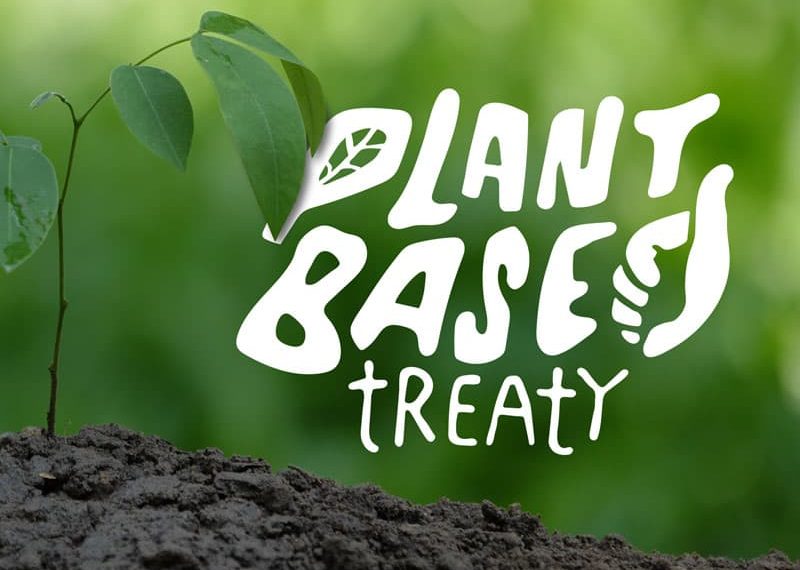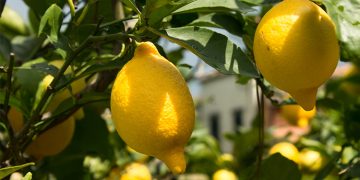Amsterdam has become the first EU capital to call for a global Plant Based Treaty to address food system impacts on the climate emergency. The proposed treaty is now backed by 25 municipal governments worldwide, including Edinburgh and Los Angeles.
In a statement, the City of Amsterdam Council said,
“The way we produce, distribute, process, and consume food has a significant impact on the health of people and animals and contributes to the climate crisis. With its Food Strategy, the municipality of Amsterdam takes responsibility to drive changes in the food system, ensuring that all residents of Amsterdam have access to healthy, fair, sustainable, and affordable food and drinks. One effort to achieve this is the shift towards more plant-based food.
The consumption of more plant-based proteins is better for our health. It can lead to fewer conditions such as cardiovascular diseases and colorectal cancer. It is also better for our climate impact by reducing greenhouse gas emissions and decreasing land use and depletion of oceans. Moreover, less industrial livestock farming is better for animal welfare. The ambition is to shift the protein ratio in the city’s diet from 40 to 60 percent plant-based by 2030.
By signing the Plant Based Treaty, the municipality of Amsterdam supports the global call to cities, organizations, businesses, and residents to contribute to combating the climate crisis by changing dietary patterns. The efforts of its own implementation agenda are pivotal in this regard.”
As well as the call for a Plant Based Treaty, Amsterdam is taking a leading role in the protein transition. A motion tabled by the Party for the Animals, which aims to make Amsterdam a ‘Plant Based Capital’, was adopted. The city will enter a covenant with major employers, public institutions such as hospitals, community centres, and care institutions in Amsterdam titled ‘Amsterdam: healthy, fair, and sustainable food city,’ that could include:
- All employees, visitors, and patients can obtain full plant-based meal options in all publicly funded institutions from 2024;
- All restoration and catering at public institutions commit to a Vegan Friday from 2024;
- All restoration and catering commit by 2030 to the animal-plant protein ratio set in Amsterdam;
- To organize an annual plant-based conference with care institutions, schools, universities, and other public institutions in Amsterdam;
Lea Goodett, Plant Based Treaty Netherlands, said, “Amsterdam has demonstrated their climate action leadership as the first EU capital to endorse Plant Based Treaty. We urge more cities to sign up to address food system impacts on the climate emergency. The introduction of plant-based food initiatives like Vegan Fridays will make sustainable plant-based food accessible to all, which will improve our health as well as strengthen food security. Everyone can take part by emailing their city council inviting them to follow Amsterdam’s great example.”
Lea Goodett, Plant Based Treaty Netherlands, continues, “Sea ice instability is a severe risk to the future of the Netherlands. The latest IPCC assessment projects the possibility of 1.5-2m sea level rise by 2100, which would see half of the Netherlands submerged, and as high as 5 meters by 2150 which would impact the entire country. The easiest way to prevent further temperature rises is to cut methane fast and of all the methane produced in the Netherlands, around 70% comes from animal farming. A plant-based food system can deliver the methane cuts we need and offer an opportunity to feed the world with one-quarter of the land, allowing us to return vast areas of land to nature. ”
Lisette Weustenenk, Plant Based Treaty Netherlands, “In light of recent protests by farmers in Paris, Berlin and Brussels, the Plant Based Treaty hopes to bring everyone together. Rising temperatures are a risk to food insecurity and food inflation, with 63% of arable land in Europe being used to grow crops for farmed animals rather than humans directly. Plant Based Treaty supports fair pay for farmers and financial packages, including subsidies to transition to sustainable plant-based systems and funding for rewilding and land stewardship.”




















